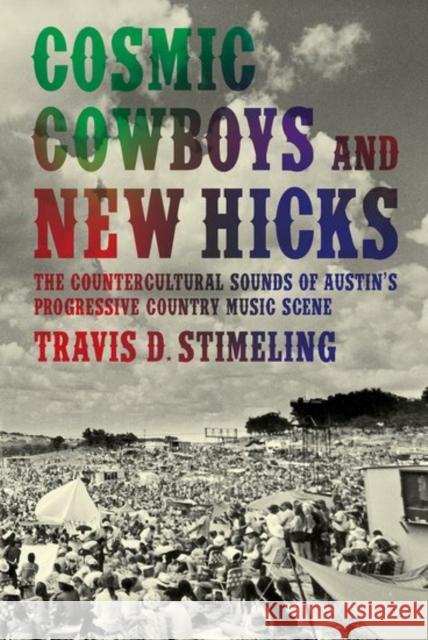Cosmic Cowboys and New Hicks: The Countercultural Sounds of Austin's Progressive Country Music Scene » książka
Cosmic Cowboys and New Hicks: The Countercultural Sounds of Austin's Progressive Country Music Scene
ISBN-13: 9780190610357 / Angielski / Miękka / 2016 / 194 str.
Cosmic Cowboys and New Hicks: The Countercultural Sounds of Austin's Progressive Country Music Scene
ISBN-13: 9780190610357 / Angielski / Miękka / 2016 / 194 str.
(netto: 166,26 VAT: 5%)
Najniższa cena z 30 dni: 158,96
ok. 30 dni roboczych
Bez gwarancji dostawy przed świętami
Darmowa dostawa!
Country music of late 1960s and early 1970s was a powerful symbol of staunch conservative resistance to the flowering hippie counterculture. But in 1972, the city of Austin, Texas became host to a growing community of musicians, entrepreneurs, journalists, and fans who saw country music as a part of their collective heritage and sought to reclaim it for their own progressive scene. These children of the Cold War, post-World War II suburban migration, and the Baby Boom escaped the socially conservative world their parents had created, to instead create for themselves an idyllic rural Texan utopia. Progressive country music--a hybrid of country music and rock--played out the contradictions at work among the residents of the growing Austin community: at once firmly grounded in the conservative Texan culture in which they had been raised and profoundly affected by the current hippie counterculture.
In Cosmic Cowboys and New Hicks: The Countercultural Sounds of Austin's Progressive Country Music Scene, Travis Stimeling connects the local Austin culture and the progressive music that became its trademark. He presents a colorful range of evidence, from behavior and dress, to newspaper articles, to personal interviews of musicians as diverse as Willie Nelson, Jerry Jeff Walker, and Doug Sahm. Along the way, Stimeling uncovers parodies of the cosmic cowboy image that reinforce the longing for a more peaceful way of life, but that also recognize an awareness of the muddled, conflicted nature of this counterculture identity. Cosmic Cowboys and New Hicks brings new insight into the inner workings of Austin's progressive country music scene -- by bringing the music and musicians brilliantly to life. This book will appeal to students and scholars of popular music studies, musicology and ethnomusicology, sociology, cultural studies, folklore, American studies, and cultural geography; the lucid prose and interviews will also make the book attractive to fans of the genre and artists discussed within. Austin residents past and present, as well as anyone with an interest in the development of progressive music or today's 'alt.country' movement will find Cosmic Cowboys and New Hicks an informative, engaging resource.










